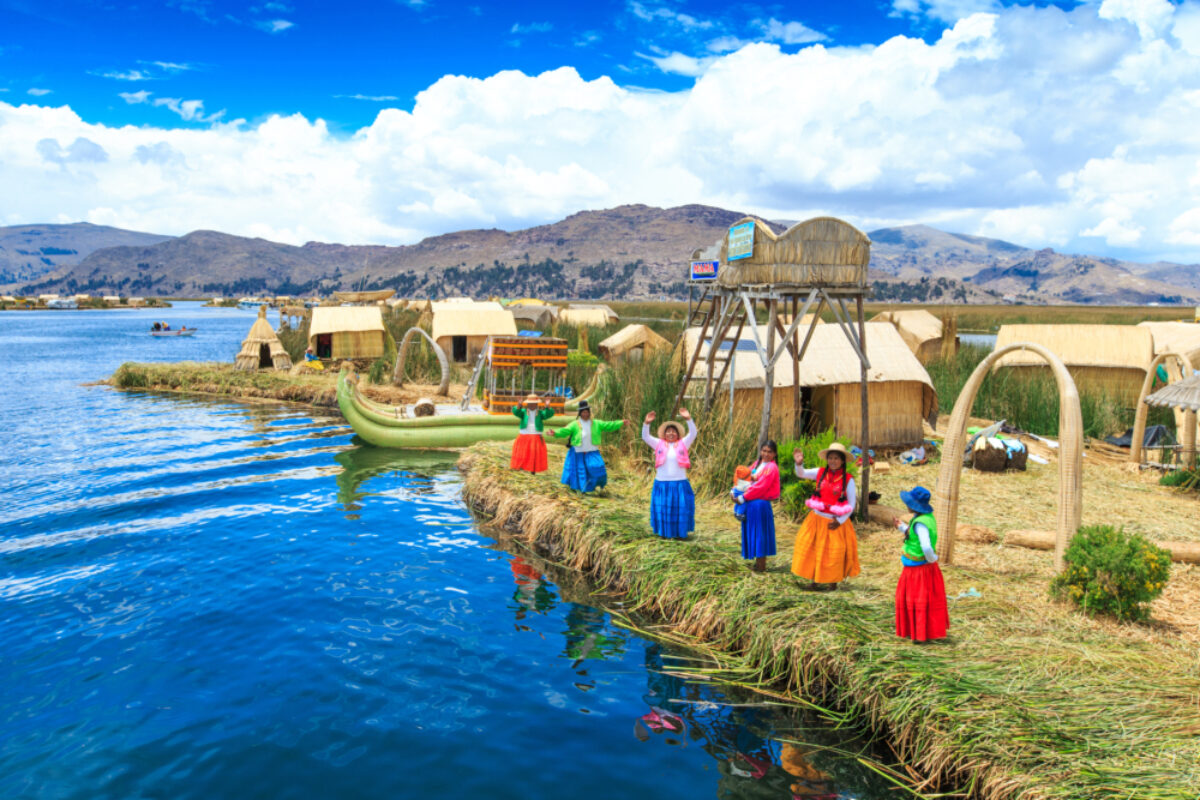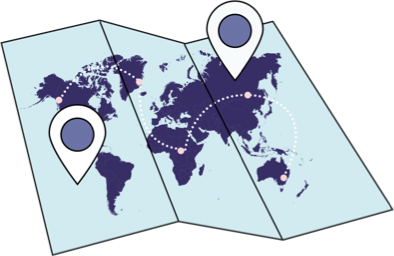The impact of village homestays in Peru
What do locals think of community-based tourism?
Community-based tourism (CBT) is a fantastic opportunity for local groups to develop a sustainable way of benefiting from tourism, and for tourists to engage more deeply with people in the places they visit. It is essential that it is well managed and based on the community’s own cultural values and social structure. It should never be imposed from the outside.
However, it must take into account the needs and wants from travellers: there are too many examples of CBT initiatives that don't work because they don't answer to the needs of the market. Without commercial success, it can become a burden and lead to conflict or jealousy. It is vital that there is good leadership and a democratic, fair and honest environment.

Tours to the Uros floating islands in Peru's Lake Titicaca: community tourism or just plain tourism?
Coporaque community
There are four families associated with the tourism committee we work with at Coporaque. Here, the women take a leading role in organising tourism in the community. Visitors usually have a single night stay, although some stay for three days and two nights. Together, the community and visitors go hiking and horseriding. For many travellers, this is their first homestay experience and a chance to see Andean life. The community has used the extra income to set up a daycare centre, which has enabled local women to accept jobs in town or work on their land during the day.
Amanda and Freddy
What motivates you to take part in the project?
To share our living culture, share our daily life and give the visitors the chance to get to know our traditions and local culture. We show them how we live.
Does tourism have an impact on your community?
Yes, it has a positive impact. It is improving the quality of life for the community's families and helps our youngsters to get different views and information. It also strengthens our cultures and traditions and makes us think about them.
What are your hopes for the future?
We hope to have more visitors so that more families in the community can benefit and that more children get the opportunity to study at university. We also want to rescue our language (Quechua) and lost traditions so we can share them with our visitors.
K’erenda Homet homestay
This family lives close to Puerto Maldonado and owns a lodge there. They are part of the Tambopata Ecotourism Corridor, an initiative that was strengthened a few years ago when the Interoceanic Highway was constructed. They run as independent accommodation, but also help other families who could be classed as competitors. They do this as they feel it’s in their interest for these families to work with sustainably operated businesses.
As it’s a jungle homestay, visitors take hikes into the forest and help the community with its conservation efforts. The family has won several awards for its reforestation work and reinvests some of the money in conservation.
Victor, Rosa and Kerenda
What motivates you to take part in the project?
After conserving the forest (from previous deforestation and contamination), the idea was to allow national and international visitors to visit it. This process has been a slow but steady one, starting with some volunteers that would stay for a while and help us with the restoration project, to researchers that would stay for several months and study wild animals and the impact the restoration project had on the environment.
We wanted visitors to get involved in family activities like farm chores, helping them to see the importance of working with the forest to create a home for the many species returning to our part of the jungle.
What do you think of the people who come and stay with you?
CBT has allowed us to have visitors collaborate and contribute to the family in a very natural way, combining their own culture with ours, without forcing them into anything. Every visitor has been an adventure -- we have learned a lot together with them.
What are your hopes for the future of K'erenda?
Our community consists of several landowners along the ecotourism corridor and a small village. We need to remain organised and continue to help each other, making use of the resources we have planted and harvested ourselves.
Vicos community
We've been working with Vicos for 17 years and it has mostly been successful, although not for every family. We started with seven families, but they didn’t see enough demand to sustain them all. So, one by one, families began to quit the tourism committee. There are now two well-maintained lodges that receive visitors, who can go hiking, make artisanal products and experience village life.
Pablo, Tadeo and Lucy Vega
What motivates you to take part in the project?
Personal development and the chance to conserve our natural and cultural resources. Working with tourism generates family income: with that I am improving the education of my children, creating employment for the community and helping more local families.
Does tourism have an impact on your community?
At the moment, I see no negative impact. However, there are some expectations to start more conventional tourism, such ass opening some tourist routes towards Quebrada Honda (the valley of Vicos).
What are your hopes for the future of Vicos?
We need to improve and develop more tourism products, so that we can also work with conventional tourism groups, adventure tourism and responsible community-based tourism -- we could operate like a small business showcasing different destinations in the region.




